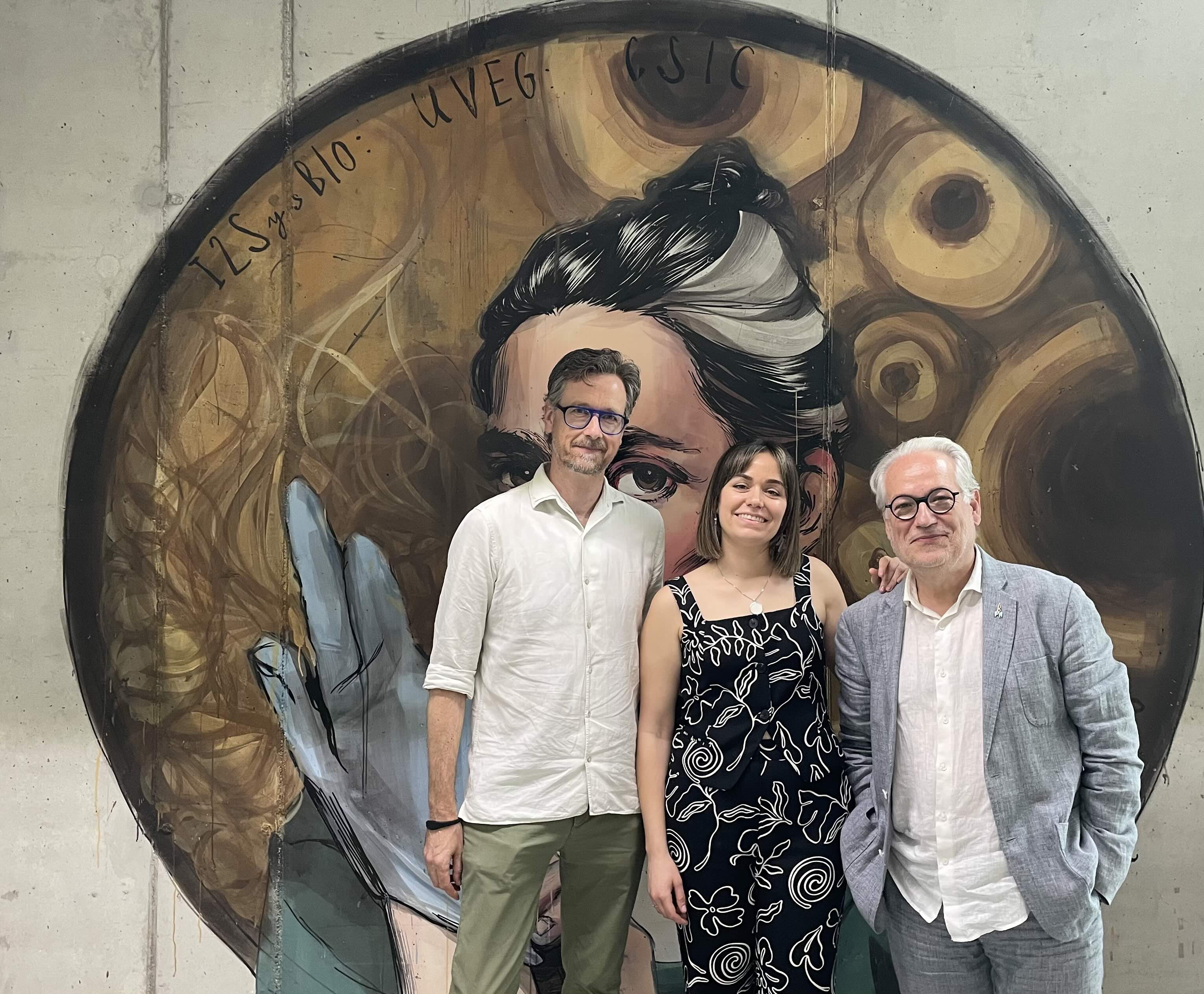Users
Social media
- More details here...
- Address
Parc Científic de la Universitat de València C/
Catedrático Agustín Escardino, 9
46980 Paterna (Valencia) Spain - Email:
iu.i2sysbio@uv.es - Phone:
(+34) 963544810
- Address
Links
Àngela Vidal-Verdú defends her thesis on how microorganisms can help clean up the planet

Investigation
Àngela Vidal-Verdú defends her thesis on how microorganisms can help clean up the planet
In this thesis, supervised by Juli Peretó and Manel Porcar, bioprospecting was carried out in little-studied environments to find microorganisms applicable to bioremediation. Some of the research results have been published in the journals MicrobiologyOpen, International Journal of Systematic and Evolutionary Microbiology, Npj Biofilms and Microbiome and Frontiers in Microbiology. The thesis was defended on 9 July 2025.
The doctoral thesis ‘Microbial bioprospecting for bioremediation: a journey from the sea to the car tank lid’ presented by Àngela Vida-Verdú to obtain her PhD from the University of Valencia shows the great potential of the microbial world to address urgent environmental challenges such as plastic pollution, oil spills and inadequate industrial waste management. The research focuses on microbial bioprospecting, a discipline that explores natural and artificial environments in search of microorganisms with useful capabilities for bioremediation, i.e., the degradation of pollutants through biological processes.
The thesis is based on the study of three surprising and little-explored environments: sediments trapped in marine debris, the fuel tank cap of vehicles and the intestine of a beetle. Through a combination of advanced genetic sequencing and microbial culture techniques, the researcher has identified communities of bacteria and fungi with a high capacity to degrade plastic, hydrocarbons, sulphates and plant biomass. During the bioprospecting of these environments, several new species of bacteria have also been systematically described, such as Isoptericola perotonis, isolated from a car tank lid, which has the ability to degrade diesel.
One of the most innovative experiments involved modifying the gut microbiota of an insect larva to turn it into a living bioreactor capable of eating plastic, combining insects and bacteria in an artificial symbiosis inspired by the ‘Trojan horse’ model. This strategy opens the door to new applications in synthetic biology and biorecycling, which transform waste into useful products instead of destroying it.
The research highlights the invisible biodiversity of the microbial world and shows how it can be key to a more sustainable future. According to Àngela Vidal-Verdú, ‘bacteria, which have been present on Earth long before us, can be fundamental allies in reversing the environmental impact of our activity’.
Àngela Vidal-Verdú carried out her doctoral research in the Biotechnology and Synthetic Biology group under the supervision of Juli Peretó, professor in the Department of Biochemistry and Molecular Biology and researcher at the Institute of Integrative Systems Biology I2SysBio (UV-CSIC), and Manel Porcar, researcher at the University of Valencia at I2SysBio. During her research, she held a contract under the FPU University Teaching Staff Training Programme (Ministry of Science, Innovation and Universities). She also received a Fulbright scholarship to spend time at Howard Hang's laboratory at the Scripps Research Institute (La Jolla). The examining board was made up of Daniel Ramón Vidal (Cardenal Herrera-CEU University), Isabel Pardo Mendoza (Margarita Salas Biological Research Centre, CIB-CSIC), and Jose Jiménez (Imperial College, London), who awarded the thesis a grade of outstanding.


